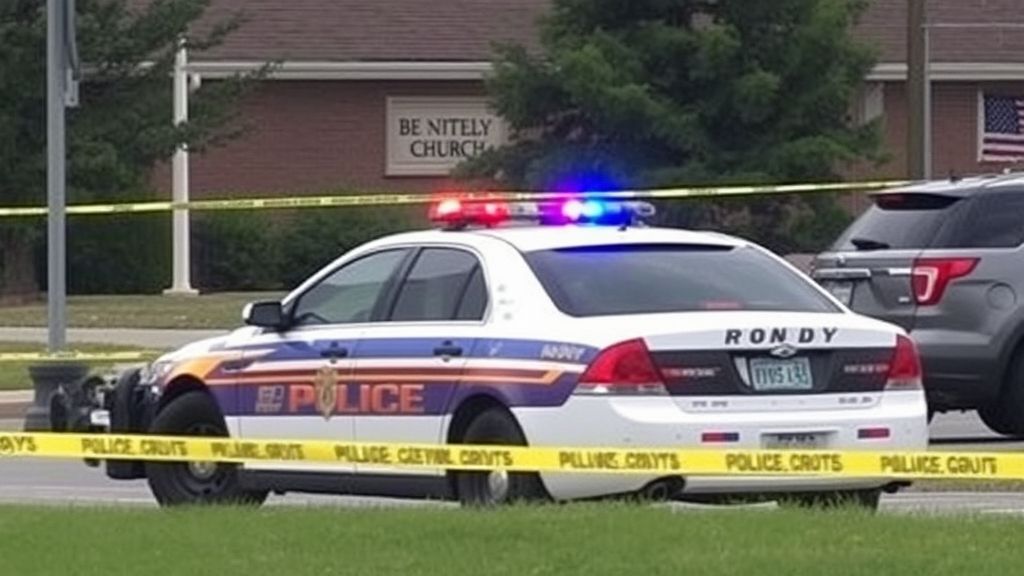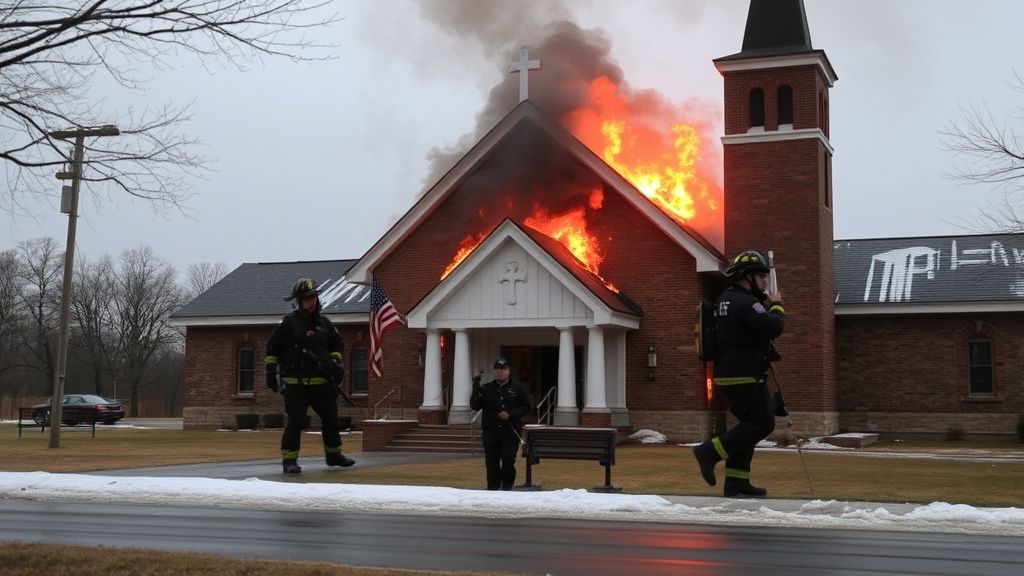Tragic violence has once again cast a shadow over a place of worship, with the recent shooting at a Latter-day Saints (LDS) church in Michigan leaving a community reeling. As authorities continue their investigation into the disturbing events, new information has surfaced, identifying the alleged gunman as a veteran of the Iraq War. This revelation brings a complex layer to an already heart-wrenching incident, prompting discussions about the potential impact of military service, mental health, and the pervasive issue of gun violence in our society. Understanding the multifaceted nature of such tragedies is crucial for fostering informed dialogue and seeking effective solutions.
Understanding the Context: Military Service and Mental Health
The identification of the alleged shooter as an Iraq War veteran immediately raises questions about the psychological toll that combat experience can have. Military service, particularly in conflict zones like Iraq, is undeniably demanding, exposing individuals to high-stress environments, trauma, and moral injury. While not every veteran experiences mental health challenges, a significant portion struggle with conditions such as Post-Traumatic Stress Disorder (PTSD), depression, anxiety, and difficulty reintegrating into civilian life.
It is imperative to emphasize that associating military service with violence is not intended to generalize or stigmatize veterans. The vast majority of veterans serve their country with honor and return home to live productive lives. However, the reality is that a subset of veterans do face significant mental health hurdles, and when these are left unaddressed, the consequences can be devastating. The National Center for PTSD reports that approximately 1 in 5 veterans who served in Iraq or Afghanistan suffer from PTSD. Furthermore, the challenges of transitioning from a structured military environment to civilian life can exacerbate existing vulnerabilities or create new ones. This often involves difficulties with employment, relationships, and a sense of belonging.
The Importance of Accessible Mental Healthcare for Veterans
The emergence of this detail underscores the critical need for robust and accessible mental healthcare services specifically tailored for veterans. The United States Department of Veterans Affairs (VA) offers a range of mental health programs, but access can be hindered by factors such as geographic location, wait times, and the stigma sometimes associated with seeking help.
Practical steps that can be taken to improve veteran mental healthcare include:
Expanding Telehealth Services: Utilizing technology to reach veterans in rural or underserved areas can significantly improve access to therapy and counseling.
Community-Based Support Networks: Fostering strong partnerships between the VA, local mental health providers, and veteran support organizations can create a more comprehensive safety net.
Reducing Stigma: Continued public awareness campaigns and open conversations about mental health can encourage veterans to seek help without fear of judgment.
Early Intervention Programs: Developing programs that identify and support veterans at risk of developing severe mental health conditions before they reach a crisis point is paramount.
The Broader Issue of Gun Violence and Faith Communities
Beyond the individual circumstances of the alleged shooter, this incident also highlights the vulnerability of faith communities to gun violence. Churches, synagogues, mosques, and temples are often seen as sanctuaries, places of peace and spiritual solace. The notion that these sacred spaces can become scenes of such horrific acts is deeply unsettling and speaks to a broader societal problem.
Numerous studies have examined the prevalence of gun violence in the United States. While the motivations behind such acts can vary, the ease of access to firearms often plays a significant role. Faith communities, like any other public gathering place, are not immune to these risks. This necessitates a multi-pronged approach that addresses both mental health and the accessibility of firearms.
Strategies for Enhancing Security in Faith Communities
While the emotional and spiritual impact of such an event is profound, it also prompts practical considerations for the security of faith-based institutions. This does not necessarily mean transforming places of worship into fortresses, but rather implementing sensible measures to enhance safety and deter potential threats.
Considerations for faith communities include:
Developing Emergency Preparedness Plans: Creating clear protocols for active shooter situations, including evacuation routes, lockdown procedures, and communication strategies.
Training for Ushers and Volunteers: Equipping individuals who are often the first point of contact with basic situational awareness and de-escalation techniques.
Collaboration with Local Law Enforcement: Establishing relationships with police departments for security assessments and emergency response coordination.
Reviewing Access Points: Strategically assessing and, if necessary, modifying entry points to create more controlled access.
Promoting Situational Awareness: Encouraging congregants to be aware of their surroundings and report any suspicious activity.
It is important to note that security measures should be implemented in a way that maintains the welcoming and open atmosphere characteristic of most faith communities. The goal is to create a safe environment without sacrificing the sense of community and spiritual co
ection that these spaces provide.
Conclusion: Moving Forward with Compassion and Action
The shooting at the Michigan LDS church is a profound tragedy that touches upon the complex intersections of veteran mental health, gun violence, and the sanctity of places of worship. As the investigation continues, it is crucial to approach this event with both empathy for the victims and a commitment to addressing the underlying issues that contribute to such violence.
This incident serves as a stark reminder of the ongoing need to:
Prioritize veteran mental healthcare: Ensuring that those who have served our country have access to the support they need to heal and reintegrate.
Engage in constructive dialogue about gun violence: Seeking common ground and evidence-based solutions to reduce the epidemic of gun-related deaths and injuries.
Support faith communities: Providing resources and guidance to help places of worship enhance their security while preserving their welcoming nature.
By fostering understanding, promoting mental well-being, and engaging in responsible action, we can strive to create a safer and more compassionate society for all.



